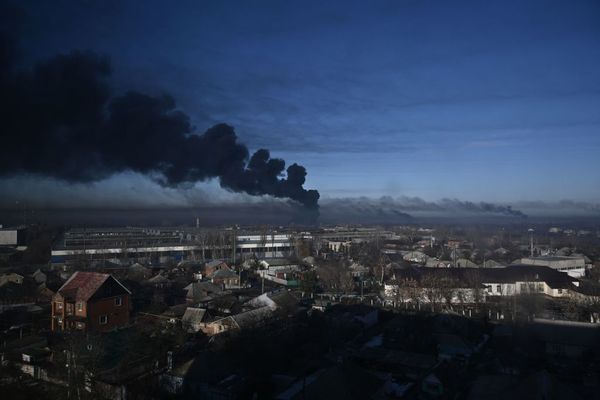Data: SIPRI; Map: Madison Dong/Axios Visuals
U.S. dominance in the global weapons trade increased dramatically over the past five years, according to new data from the Stockholm International Peace Research Institute.
The big picture: Russia slipped to an increasingly distant second place, while China’s share of global exports stayed relatively flat.
By the numbers: The U.S. accounted for 40% of total exports from 2018-2022, up from 33% in the previous five years, while Russia declined from 22% to 16%.
- The U.S. provided more than half of the weapons purchased by 13 of the top 17 arms importers, with Saudi Arabia, Japan and Australia buying the most from the U.S.
- The world’s top arms importer, India, reduced its purchases of Russian weaponry by 37% from 2018-2022 vs. 2013-2017, though Russia remained India's top supplier.
- France was the No. 3 exporter over the last five years, thanks largely to contracts to sell combat aircraft, followed by China and Germany.
- Other major exporters include Italy, the U.K., Spain, South Korea and Israel.
What to watch: Ukraine accounted for less than one-tenth of 1 percent of global arms imports until recently, but the flow of arms to Ukraine is now starting to reshape the global defense industry.
- Both the U.S. and EU are contemplating how to build up their defense industrial bases to keep up with the demands of the war, replenish their stockpiles and prepare for future conflicts.
- Russia, meanwhile, will likely play a smaller role in the global arms trade in the coming years both because its weapons are needed for the war and due to sanctions aimed at reducing its capacity to produce more.







